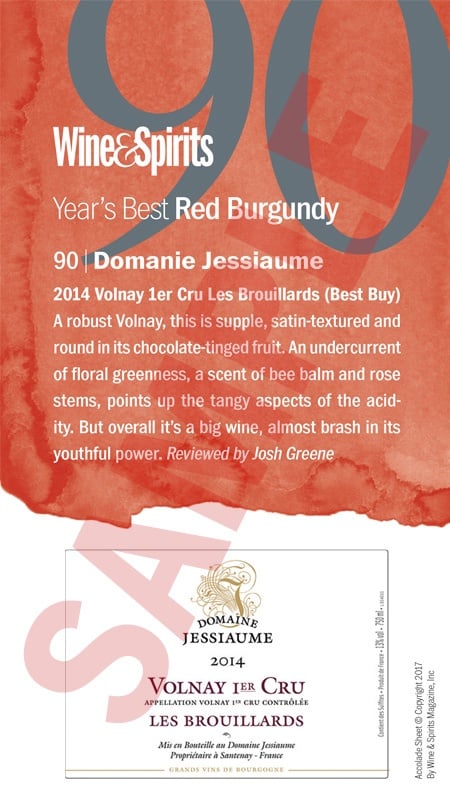

Photo by Lexie Moreland
In April, I contemplated opening this essay with a recollection of scents and flavors that marked my upbringing as Palestinian-American, the dukkah and the za’atar, the brine of home-cured olives, lemons of various types, oranges, pomegranates, figs, apricots, loquats—all grown in our garden. Gaza, my father’s hometown, is also known for strong flavors, piquant and sour: chiles and garlic, dill seed, sumac and lots of lemon. We like hot and sour in Gaza, but also sweet. Gaza, into the Islamic era, was famed for its sweet wines, which were exported throughout the Mediterranean basin and beyond.
Writing about wine for over two decades, I always try to evoke the sensuous experiences of childhood in the wines or foods I describe in hopes of stirring my readers’ imaginations. When Tara Thomas asked me to help evaluate Palestinian and Israeli wines for the current issue (all tasted blind), I was excited to put my method to practice on wines made at the source of my flavor imagination. Yet, with tensions rising in Palestine-Israel at the time of the tasting, I knew that, for me, to write about Palestinian wines stripped of their historic and contemporary political context would be the same as not writing about them at all.
While history and politics play a role everywhere wine is made, what is different about the wines of Palestine versus, say, Greece, is that no one questions the existence of Greece or the rights of Greeks to make wine. In Palestine, not only is its name challenged, but so is the right of Palestinians to live and work, to farm and prosper on their land.
Palestinian winemakers endure multiple challenges. Armed Israeli colonists routinely destroy Palestinian vineyards and farms, uproot ancient olive trees, and expropriate, with the support of the Israeli military, Palestinian lands. Indigenous foods—falafel, hummus, and za’atar—also have been appropriated by Israelis as their own, though many of these dishes are regional, with versions in neighboring countries. Does one village’s chickpeas (“hummus” in Arabic) or sesame seeds for tahini taste better than another’s? Maybe, but the distinctions are trivial. Wine, though, can be something else, dependent on local grape varieties and the local terroir.
Because of an Israeli and Egyptian blockade, nearly 20 years have passed since my last visit to Gaza, so my opportunities to enjoy Palestinian wines have been limited. (Wine is scarce in Gaza anyway, but easily found in Ramallah and Bethlehem.) Until recently, little Palestinian wine was imported to the US, so instead, I embraced those from Lebanon. The cultures, Arab and eastern Mediterranean, are similar: we sing the same songs, swim in the same sea and suffer some of the same sadness. Yet the sense of exile seems stronger the closer you are to the home you are kept from.
The thirst for Palestine cannot be slaked by the contents of a bottle, but a taste of its wine evokes a sense of place, and the resilience of the vinegrowers and vintners behind it. Wines from Palestine’s oldest winery, Cremisan (outside Bethlehem) echo the scents of the land. Dabouki, a white, is redolent of the citrus and jasmine I smelled when entering my grandparents’ home in Gaza, with a hint of earthy, bitter spice. Baladi, a red whose name means “my country” in Arabic, joins the light freshness of hibiscus with the sappy undertones of pomegranate molasses. Cremisan’s vineyards, planted largely to indigenous cultivars, have been bisected by Israel’s massive wall separating West Bank Palestinians from Israelis. Access is allowed only with Israeli army permission. Shafaya, a red blend made by Nemi Askhar, a Palestinian citizen of Israel in northern Galilee, recalls the spicy dark fruit of the mulberries I found in a farmstand by Ramallah, and is underlined by violets and tamarind, the latter a cognate from the Arabic tamar-hindi, literally “Indian date.” But Ashkar must purchase grapes from an Israeli farmer occupying lands of the village from which Akshar’s family was banished during the events of 1948. It’s a date Israelis celebrate as their independence and that Palestinians mourn as their Nakbah or Catastrophe.
For decades, I’ve tried to incorporate history, politics and culture into my writing about wines from everywhere. I admit that it felt perverse and frivolous to analyze the aromatic nuances of wines while worried about family in Gaza—yet the scents and flavors I found proved a tonic at a time when I needed to be connected viscerally. Wines come from the earth, and they embody and assert our identity, and our unbroken connection to the land, a way of saying: We exist, we live, we eat, we drink, we can be happy despite. In the words of the national Palestinian poet Mahmoud Darwish, from his “Promises of the Storm”:
I will go on serenading happiness
Somewhere beyond the eyelids of frightened eyes
For from the time the storm began to rage in my country
It has promised me wine and rainbows.
Jamal Rayyis is a NYC-based writer, editor and educator—and copy editor for this magazine. A pioneer in covering Middle Eastern wine, he is at work on a book on the politics of wine in the Middle East and occasionally updates his blog at palatesavvy.com.
This story appears in the print issue of August 2021.
Like what you read? Subscribe today.

















